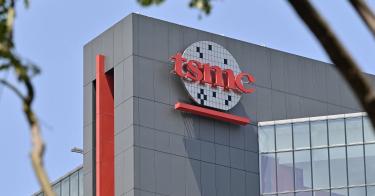Thanks to the communist side of the Strait, awareness of the threats facing Taiwan is higher than at any time in the last 50 years. It’s an opportunity to educate the world about all the country has to offer, from public health and disaster relief to entrepreneurship and democratic governance. One of Taiwan’s greatest strengths—its semiconductor industry—however, is also potentially a terrible political liability. Taipei and friends of Taiwan should be careful how they wield it.
The idea that China could shut down large swaths of the global economy with an attack on the center of 60% of the world’s microchip manufacturing, including 92% of the world’s most advanced chips, has captured the imagination of foreign policy types. Here are just a few recent headlines: “The World Relies on One Chipmaker in Taiwan, Leaving Everyone Vulnerable” (The Wall Street Journal); “The World is Dangerously Dependent on Taiwan for Semiconductors” (Bloomberg); “Why threats to Taiwan are a nightmare for tech” (Axios).
>>> The Fight for Semiconductor Leadership in Asia
An industry-destroying Chinese invasion is not the only scenario being spun. Some envision the PLA seizing control of fab shops and forcing them to continue manufacturing at gun point. To say this is highly unlikely is an understatement. These are sophisticated workplaces, not iron mines.
Yet another, more plausible scenario is a longer-term pressurizing of the Taiwanese political environment that eventually yields accommodation of China. The way things are headed in cross-straits relations, though, this would necessitate a sea change in the politics of both countries, as well as both of their relationships with the U.S. For example, if China were to apply pressure by seizing one of Taiwan’s outlying islands—say, Pratas or Kinmen or Taiping—it would certainly not make Taiwan more pliable. Not only would Taiwan’s resolve stiffen, but so would the resolve of its many friends around the world.
At the end of the day, the threat to the global supply of semiconductors is only as great as the general threat of an invasion. And at that point, we’ve got bigger problems than the price of electronics.
Meantime, the narratives around the threat to global supply chains play into another very powerful current in U.S. politics. Disruptions in the supply of personal protective equipment during the COVID-19 pandemic sensitized Americans to the security of supply chains across the board. The current chip shortage has trained this concern most intensely on semiconductors.
And where Americans see crisis, American politicians and companies see opportunity. Already, lawmakers have proposed legislation to offer subsidies to chipmakers, and industry reps are fanning out on Capitol Hill to nail down support. One American tech CEO summed up the situation by repeating the advice offered by then-White House Chief of Staff Rahm Emmanuel at the height of the 2008 financial crisis: “Never let a good crisis go to waste.”
Only the most intrepid defender of economic freedom dares stand athwart this surge yelling “Stop.”
A similar push is underway in Japan and Europe and, perhaps most consequentially, in South Korea. South Korea already leads the world in the memory chip side of this industry. Its effort to catch Taiwan in the production of microprocessors is very credible—as well as curiously unburdened by the security concerns posed by the active threat out of Pyongyang.
The downside for Taiwan in all of this is obvious. A global effort is coalescing around the need to move semiconductor production out of Taiwan. This cannot be good for Taiwan’s economy in the long run. Not only does it constitute an assault on Taiwan’s industrial crown jewels, but the ultimate and inevitable crash in prices certain to follow so many countries pursuing self-sufficiency is going to hurt, too.
>>> U.S. Isn’t Alone in Support of Taiwan
Twenty years ago, Craig Addison coined the term “silicon shield” to describe the deterrent effect that Taiwan’s role in the semiconductor industry has on China’s dreams of unification. “China will have to think long and hard,” he said, “before taking any military action to disrupt or destroy Taiwan’s economy.” The current consensus around the threat to Taiwan has turned this assessment on its head. The concentration of microchip production capacity in Taiwan is coming to be seen more as provocation of China than deterrent. More importantly, if defense of Taiwan becomes primarily a matter of global supply chain security, then once it is no longer so central to the world’s supply of semiconductors, the world will have less stake in its fate.
The defense of Taiwan is important to the world for many reasons. Chinese belligerence gives its supporters a good opportunity to advertise them. Overemphasizing Taiwan’s role in the global supply of electronics, however, could backfire in a major way. Those who care about Taiwan’s security should be very careful with how we talk about it.
This piece originally appeared in the Taipei Times



